
Campsite Shortage: 6 Tips to Plan Ahead for Camping in 2021
Campsite Shortage: 6 Tips to Plan Ahead for Camping in 2021
How to make sure you have the campsites you want on your next RV trip!
By: Alyssa Padgett
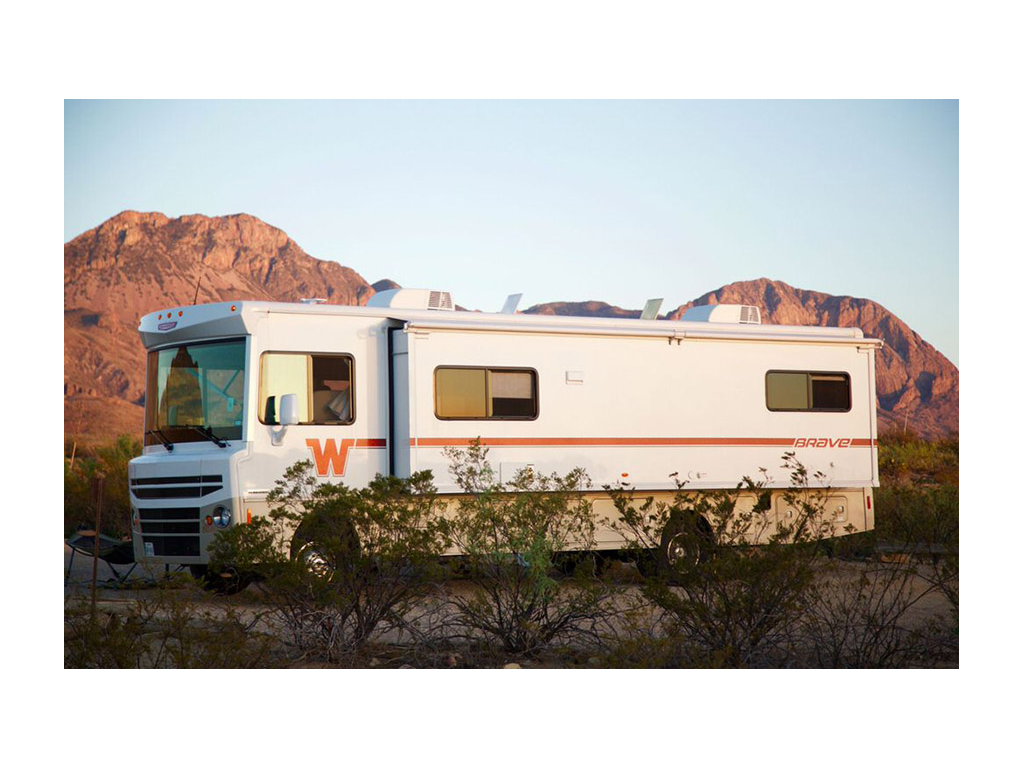
As we’ve RVed over the years, it’s become increasingly difficult to find available campsites. In 2020, we ran into the problem more than ever!
We spent July 4th week in a friend’s driveway because there were NO spaces at local campgrounds or even on public lands.
A few years ago, I read a study that said RVing was becoming so popular that there were three RVs for every one campsite in America. I can only imagine how that number has changed in the past two years! With so many more Americans camping in 2021, you can expect to face some major campsite shortages.
It’s actually our own difficulties finding quality RV parks with availability that has inspired us to build a campground of our own!
While new campgrounds are being built to accommodate the growing market for RV camping, there are a few things you can do to plan ahead and make sure you can get a campsite this season.
How to Make Sure you Have a Campsite in 2021
Here are six tips to avoid falling victim to the campsite shortage:
1. Book Now
The best way to make sure you have a campsite in 2021 is to book early. Depending on where you’re wanting to camp, sites usually book out anywhere from 6-12 months in advance. If you want to spend next January or February in the Florida Keys, for example, you need to book by spring break because those sites get booked up fast!
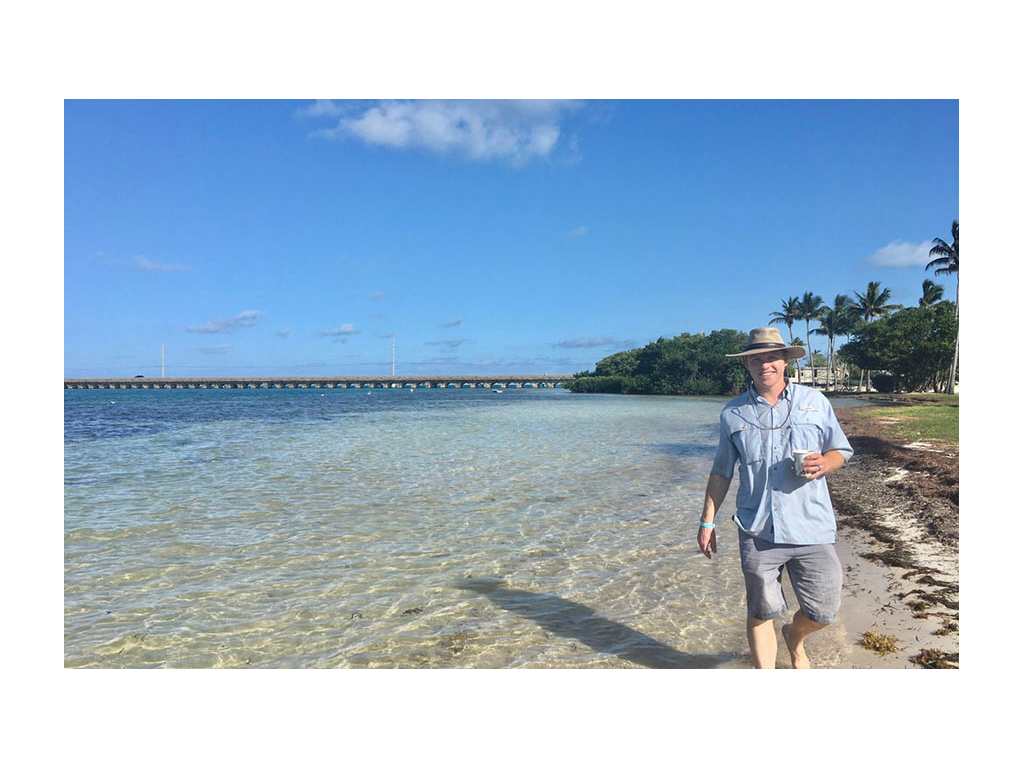
Major destinations like national parks in the summer or the northeast when the leaves change color in September should be booked around six months in advance.
If you’re planning a summer trip, check to see if you can easily book your campsite online.
This does mean some additional early planning. You may not even know where you want to camp yet! That’s where trip planners come in.
2. Use a Trip Planner
Trip planners are great for finding RV parks and travel destinations for your next road trip.
Our favorite is RV Trip Wizard, which lists more than 57,000 campgrounds and points of interest. Plus, they integrate campground reviews, which can save you the time of extensively researching campgrounds to visit.
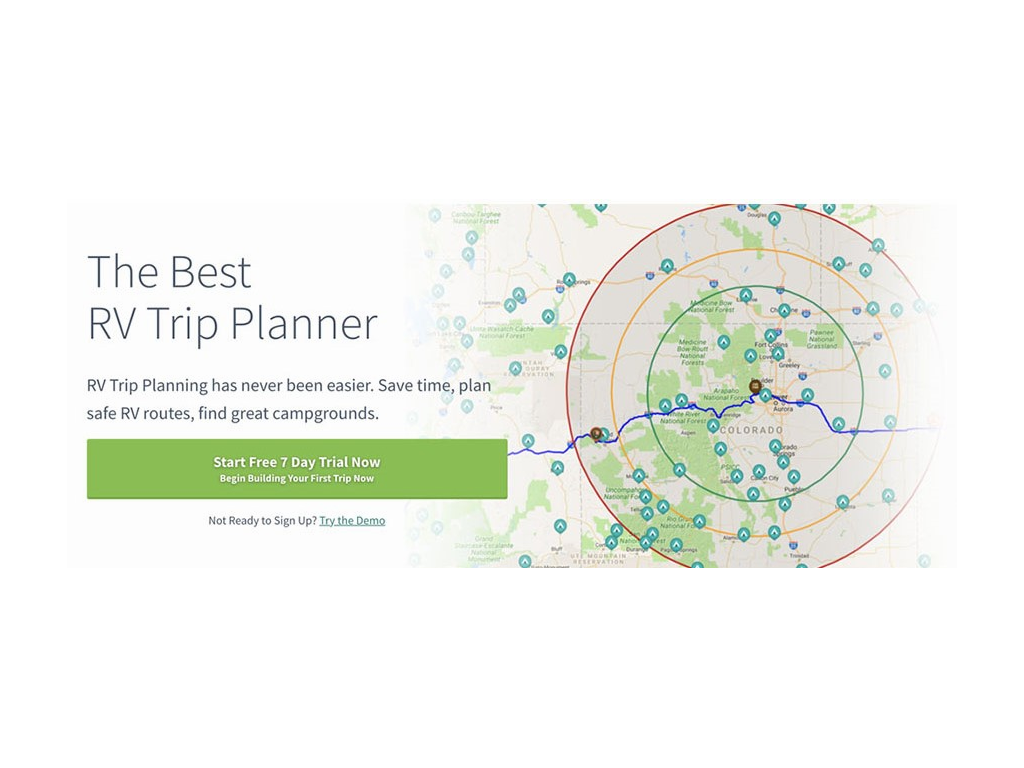
RV Trip Wizard can also help you estimate costs for your road trip based on potential gas prices and camping fees and allows you to set driving limits, so you don’t end up on the road for 12 hours straight.
All you need to do is figure out which direction you want to go!
RV industry sites like Go RVing are also a great place to find sample road trip ideas and even book campsites directly from their trip planner.
3. Read Cancellation Policies
Before you click ‘book now,’ be sure to read any cancellation policies — especially if you think your travel plans may change or you want to remain flexible.
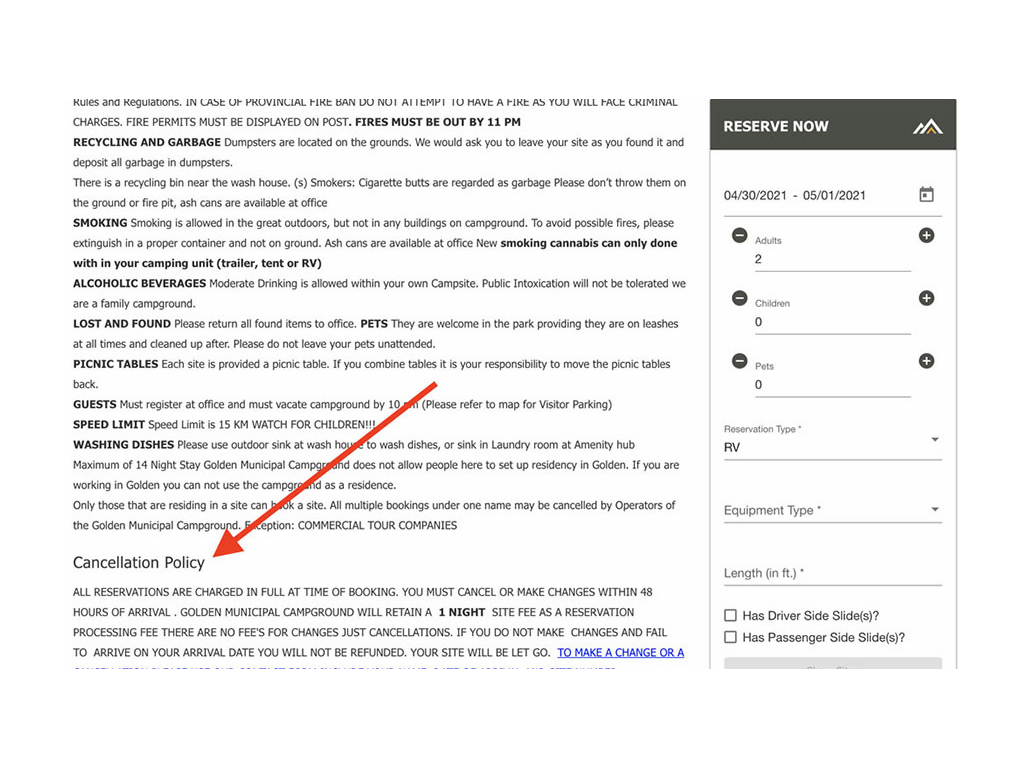
Many campgrounds may have you pay in full before arriving with no refunds or pay for a portion of your stay upon booking. A quick once-over on the cancellation policy should give you a good idea on how flexible your booking is.
As an RVer, I generally avoid making reservations at campgrounds that don’t offer refunds or require you to pay in full at booking, just in case my travel plans change!
If you’re booking ahead but not sure if you’ll make your reservation, set a reminder in your phone to alert you within the cancellation policy deadlines. You’ll likely be charged if you don’t show up or forget to cancel.
4. Check if Parks Have a Bookings Launch Date
At Campground Booking, our online reservation system for campgrounds, we’ve found that many parks — specifically seasonal parks open only for the summer — formally launch bookings.
This looks like opening online reservations on a set day and booking out their entire season in 24 hours. Parks that set up launches like this will book out every holiday and most weekends in a few short hours. You can see if a park is already accepting 2021 reservations by checking their website.
If a park has a designated season opening day for online bookings, set a reminder on your phone, so you don’t miss out on your campsite.
5. Book National and State Parks First
If you’re planning a trip where you’ll stay at multiple campgrounds, book the most popular campground first.
For example, a few years ago, we wanted to camp in Banff National Park. Banff is one of the most popular national parks on the continent, making summer campsite reservations difficult.
Our desired dates weren’t available, so we made two awkward reservations with a couple day gap in the middle. It wasn’t ideal, but it was the only way to see the park! All of our plans for the rest of the summer were made around those reservations at Banff.
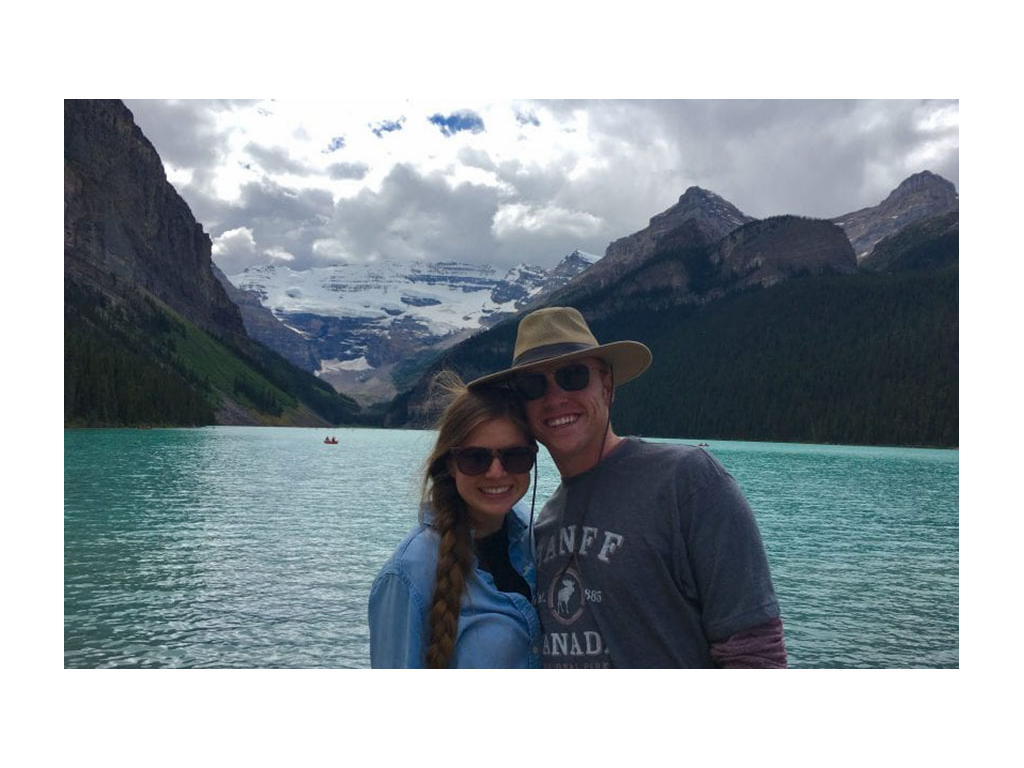
Generally, state and national parks are the most popular camping destinations in the country, so I recommend booking those online first. If you’ll be staying at any private campgrounds during your trip, book those after your popular park campsites are reserved.
6. Get on a Wait List
I mentioned that our reservations at Banff had an awkward gap between them. When we arrived at the campground, they told us they offer (paid) overflow parking for instances like this. We didn’t have hookups or a designated site, but we did have a place to stay in the national park for a couple nights.
Campers in the overflow spot were on the unofficial waitlist to get a campsite should someone cancel or miss their reservation. We checked in with the rangers each morning and snagged a site for one night!
Some parks may have waitlists or overflow options like this. The best way to find out is to call the park and/or ask upon arrival.
I expect more campsite shortages this year than ever before. Take the stress out of your summer road trip and follow these tips to plan ahead.
Comments
Comments on this post are moderated, so they will not appear instantly. All relevant questions and helpful notes are welcome! If you have a service inquiry or question related to your RV, please reach out to the customer care team directly using the phone numbers or contact form on this page .